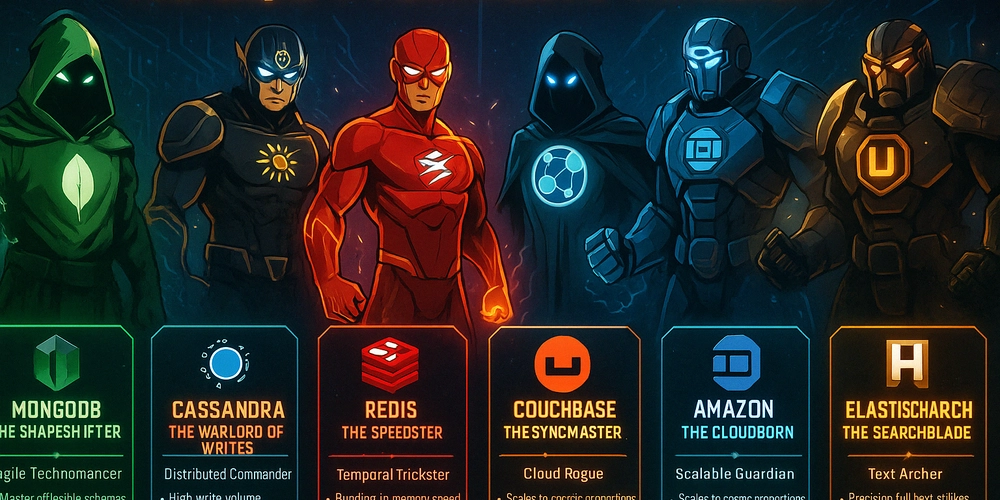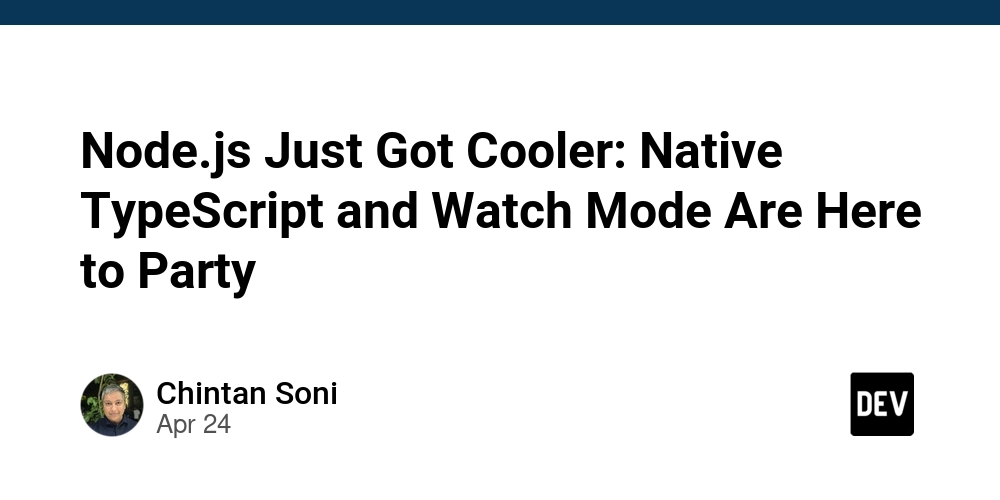
NoSQL Database Comparison: Choosing the Right Data Titan for Your Project
Choosing the right database can feel like entering a gladiatorial arena. In the world of NoSQL databases, each contender brings unique strengths to the table. This NoSQL database comparison dives into the powers and weaknesses of popular options like MongoDB, Cassandra, and Redis, helping you select the champion for your specific needs. Let's explore the key features of different types of non-relational databases and how to choose a NoSQL database.
MongoDB: The Agile Document Bender
- Type: Document
- Best For: Web apps, CMS, e-commerce platforms
MongoDB is renowned for its flexible schemas and JSON-like (BSON) document storage. It's adaptable and perfect for projects with evolving data structures. Quickly create indexes and query faster on semi-structured data, which is great for scaling. Keep in mind there could be consistency issues as databases scale or performance concerns with complex relationships.
Cassandra: The Unstoppable Write Warlord
- Type: Wide-column
- Best For: IoT, Real-time analytics, Social networks
Cassandra excels in handling massive write volumes and distributing data across multiple regions. It boasts incredible resilience and fault tolerance, ensuring your data remains accessible. However, the data modeling can be complex. Due to its query flexibility, the database is ideal for applications needing high availability.
Redis: The Lightning-Fast Memory Phantom
- Type: Key-Value
- Best For: Caching, Messaging systems, Leaderboards
Redis delivers blazing-fast performance through in-memory data storage. It supports advanced features like pub/sub messaging and real-time leaderboards. With low-latency operations, Redis is a go-to choice for caching, however, durability comes at a price.
Neo4j: The Graph Seer of Relationships
- Type: Graph
- Best For: Fraud detection, Social graphs, Recommendations
Neo4j specializes in uncovering hidden relationships within your data. It leverages the Cypher query language for efficient pathfinding and relationship analysis. It is an asset for applications that needs insights from interconnected data. Performance concerns can arise if you perform too many horizontal searches or when too much data is written.
Couchbase: The Hybrid Hacker of Sync
- Type: Document + Key-Value
- Best For: Offline-first apps, Real-time APIs, Caching
Couchbase combines the flexibility of document databases with the speed of key-value stores. It offers robust mobile synchronization capabilities and SQL-like N1QL querying. Consider cost optimization and the complexity of implementing this database.
DynamoDB: The Cloudborn Scalable Sentinel
- Type: Document + Key-Value
- Best For: Serverless apps, Gaming, Shopping carts
DynamoDB is a fully managed, auto-scaling database designed for serverless environments. It offers configurable consistency levels and high availability. Costs can rise quickly without optimization and the query options may need indexing to improve.
Elasticsearch: The Precision Searchblade
- Type: Search / Document
- Best For: App/site search, Log analytics, Observability
Elasticsearch is optimized for full-text search and real-time analytics. It provides powerful data visualization tools through Kibana. It is considered a non-transactional fighter and also a memory hog.
HBase: The Ancient Colossus of Big Data
- Type: Wide-column
- Best For: Telecom, Financial archives, Hadoop ecosystems
HBase is engineered for handling massive datasets and integrates seamlessly with the Hadoop ecosystem. It excels at batch processing and time-series data analysis. Implementing and learning how to use this system requires a lot of provisioning.
NoSQL Database Comparison Chart: Find Your Perfect Match
| DB HERO | SPELL TYPE | SUPERPOWER | BEST BATTLEGROUNDS |
|---|---|---|---|
| 🌀 MongoDB — The Shapeshifter | Document | Schema flexibility, fast querying | Web apps, CMS, e-commerce |
| ⚔️ Cassandra — The Warlord | Wide-column | High write throughput, distributed scalability | Real-time analytics, IoT, social networks |
| ⚡ Redis — The Speedster | Key-Value | In-memory speed, pub/sub magic | Caching, messaging systems, leaderboards |
| 🕸️ Neo4j — The Webweaver | Graph | Powerful relationship navigation (Cypher) | Social graphs, recommendations, fraud detection |
| 🔄 Couchbase — The Syncmaster | Document + KV | Mobile sync, hybrid model flexibility | Offline-first apps, real-time APIs, caching |
| ☁️ DynamoDB — The Cloudborn | Document + KV | Auto-scaling, managed infrastructure | Serverless apps, gaming, shopping carts |
| 🎯 Elasticsearch — The Searchblade | Search / Document | Full-text search precision, analytics power | App/site search, log analytics, observability |
| 🗿 HBase — The Ancient Colossus | Wide-column | Batch data processing, massive scale | Telecom, financial archives, Hadoop ecosystems |
Final Verdict: Choose Your NoSQL Champion
Selecting the right NoSQL database depends entirely on your project's unique demands. Whether you prioritize speed, scalability, flexibility, or specialized data analysis, there's a NoSQL hero ready to champion your cause. Consider the strengths and weaknesses outlined in this NoSQL database comparison to ensure your data is in the best hands.























